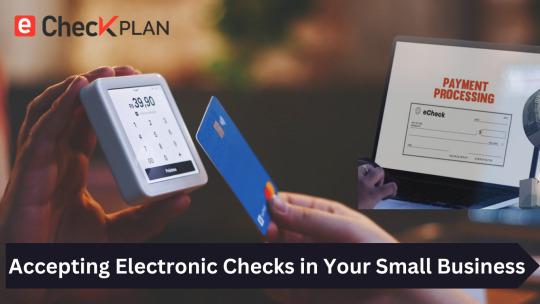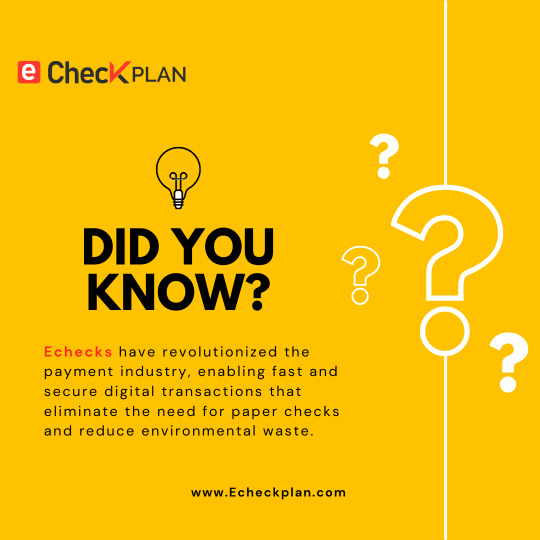#high risk payment processors
Explore tagged Tumblr posts
Text
Navigating High-Risk: The Advantages of Using High-Risk Payment Processors for High-Transaction…
#Navigating High-Risk: The Advantages of Using High-Risk Payment Processors for High-Transaction…#high risk payment processors#payment processor#high-risk payment processing#payment processing#high risk payment processing#high risk payment processor#high risk payment gateway#high-risk payment gateway#online payment processing company#payment gateway#online payment processing#high-risk payment processing for cbd business#payment processor for high risk merchants#payment processors#merchant account for high risk business
1 note
·
View note
Text
Bitcoin Benefits for High-Risk Merchants
Bitcoin is reshaping payment processing for high-risk industries with lower fees, reduced chargebacks, and global accessibility. WebPays helps businesses leverage bitcoin benefits for high-risk merchants, offering secure and efficient payment solutions. Contact us today to integrate bitcoin into your payment system.

#bitcoin#payment processing#payment processor#high risk payment#high risk payment processing#payments
2 notes
·
View notes
Text
Accepting Electronic Checks in Your Small Business: A Comprehensive Guide

Introduction:
In the ever-evolving landscape of business and finance, staying adaptable and responsive to emerging payment trends is crucial for the success of small businesses. One such trend that has gained traction and offers an array of benefits is the acceptance of electronic checks, commonly referred to as eChecks. If you're a small business owner looking to broaden your horizons and enhance your payment options, this comprehensive guide is here to demystify eChecks, providing insights into what they are and, most importantly, how to seamlessly integrate them into your business operations.
What is an eCheck?
An electronic check, or eCheck, is a digital version of a traditional paper check. It enables businesses and customers to conduct transactions electronically, making it a convenient and cost-effective payment method. Instead of writing a physical check, the payer enters their banking information online, and the funds are transferred directly from their bank account to the recipient's account.
Why Accept eChecks?
Cost-Effective: eChecks are often cheaper than credit card transactions because they have lower processing fees, making them an attractive option for small businesses.
Reduced Fraud Risk: Electronic checks are more secure than paper checks as they involve encryption and authentication processes, minimizing the risk of fraud.
Faster Settlement: eChecks typically clear faster than paper checks, improving your cash flow.
Convenience: eChecks are convenient for both you and your customers, as they can be processed online, reducing the need for physical paperwork.
How to Accept eChecks in Your Small Business:
Now that you understand the benefits of accepting eChecks, let's explore how to implement this payment method in your small business.
1. Choose an eCheck Service Provider:
Start by researching eCheck service providers. Look for companies that offer competitive pricing, robust security features, and user-friendly interfaces. Some popular eCheck service providers include:
Compare the fees, features, and compatibility with your existing systems to make an informed choice.
2. Set Up Your Business Account:
Once you've selected an eCheck service provider, create a business account. You'll need to provide your business information, banking details, and contact information.
3. Integrate eCheck Payment:
Depending on your chosen provider, you may need to integrate eCheck payment into your website or point-of-sale system. Many providers offer plugins or APIs to facilitate this integration. Ensure that the payment process is user-friendly and straightforward for your customers.
4. Educate Your Customers:
Inform your customers that you now accept eChecks as a payment option. Include this information on your website, invoices, and any other customer-facing materials. Provide clear instructions on how they can make payments using eChecks.
5. Test the Process:
Before fully launching eCheck payments, conduct a few test transactions to ensure everything is functioning correctly. Verify that funds are deposited into your business account as expected.
6. Monitor Transactions:
Regularly monitor your eCheck transactions and reconcile them with your accounting records. This will help you stay on top of your finances and quickly identify any discrepancies.
7. Maintain Security:
Security is paramount when dealing with electronic payments. Ensure that your eCheck service provider has robust security measures in place to protect sensitive customer data and financial information.
8. Provide Excellent Customer Support:
Offer reliable customer support for any payment-related inquiries or issues. Promptly address customer concerns to build trust and confidence in your eCheck payment process.
Conclusion:
Embracing eChecks as a payment option in your small business can enhance your payment processing capabilities, reduce costs, and improve customer satisfaction. By following these steps and choosing a reputable eCheck service provider, you can seamlessly integrate eCheck payments into your business operations and provide added convenience to your customers. Stay up to date with the latest payment
#echeck#high risk merchant account#payment processor#echecks#echeck payment processing solutions#echeck payment#credit card#merchant account#merchant services#electronic#ECheckPayments#SmallBizPayments#ElectronicChecks#PaymentProcessing#DigitalChecks#SmallBusinessFinance#SecurePayments#BusinessPayments#FintechSolutions#ConvenientPayments#MoneyManagement#PaymentSolutions#ECommercePayments#CashlessTransactions#BusinessTransactions#FinancialTech#PaymentSecurity#CustomerPayments#OnlinePayments
4 notes
·
View notes
Text
How To Choose The Best High-Risk Payment Processor For Your Business?
Navigating payment challenges is critical for high-risk sectors. This blog explains high-risk payment processing and highlights key factors like industry experience, compliance, fraud prevention, processing speed, and support. It also outlines steps to compare providers, review pricing, and assess contract terms for better decision-making. Read the whole blog to know more.

0 notes
Text
#paymentprocessing#payment processor#paymentgateway#payment processing#credit card processing#highriskmerchantaccount#merchantservices#high risk merchant account#payment gateway
0 notes
Text
Online Dating Merchant Account Solutions | Offshore Unipay
Get secure online dating merchant account solutions with Offshore UniPay. Accept payments globally with our high-risk payment gateway for dating websites.
#dating merchant account#merchant account for dating site#high risk payment processing in uk#offshore unipay#dating payment processing#dating payment processor
0 notes
Text

How I Choosing the Right eCheck Payment Processor for our Business? Choosing the right "eCheck payment processor for your business" involves careful consideration of several key factors to ensure smooth transactions and optimal service
#Offshoregateways#High Risk payment gateway iptve#eCheck processing#Best echeck processor#eCheck payment processing#eCheck payment gateway#eCheck merchant account#High risk eCheck processing#ach eCheck processing#eCheck merchant services#Bulk eCheck Processing#High-Volume ACH Payments#Mass Payment Solutions#eCheck Batch Processing#High-Volume Payment Gateway#ACH Bulk Transfers#Enterprise eCheck Solutions
0 notes
Text

0 notes
Text
Decoding High-Risk Products and Services in the Payment Industry
#Decoding High-Risk Products and Services in the Payment Industry#payment processing#merchant services#financial services#merchant account services#high risk payment processor#what is merchant services#credit card merchant services#payments news under the lens#payment processor#payment gateway#high risk payment processing#accept credit card payments#under the lens#product manger interview#payments news#cbd payment processing#high risk payment gateway#cbd and hemp oil merchant accounts#international payments
1 note
·
View note
Text
International High-Risk Payments
Managing international high-risk payments can be challenging with varying regulations and currency fluctuations. At WebPays, we offer practical support to help you handle these complexities effectively. Our approach simplifies international high-risk payments, allowing you to address risks confidently. Contact us today for more details.

#high risk payments#payment processing#payment processor#payments#high risk merchants#high risk processing#international high risk payments
1 note
·
View note
Text

Did You Know?
Echecks have transformed the payment industry by introducing swift and secure digital transactions, eradicating the reliance on traditional paper checks and contributing to the reduction of environmental waste.
for more information visit:- echeckplan.com
Contact:- [email protected]
(800) 974-9661
#echeck#echeck payment#high risk merchant account#echecks#echeck payment processing solutions#merchant account#merchant services#payment processor#credit card#electronic#usabusiness#businessowner#usa#usabusinessowners
2 notes
·
View notes
Text
Top Countries Supporting High-Risk Payments in 2025
Navigating international payments is especially tough for high-risk industries. This blog lists the top countries supporting high-risk payments in 2025, including insights on policy, infrastructure, and market readiness. It's useful for merchants seeking reliable regions to operate in. Read the whole blog to know more.

#payments#payment solutions#payment processor#payment processing#high risk payments#payment#high risk#high risk processing
0 notes
Text
Written by Daniel R. Blake, a certified high-risk payments consultant with over a decade of experience helping businesses in the CBD, vape, adult, and nutraceutical industries secure reliable, long-term payment solutions. Daniel has assisted 2,500+ merchants with approvals, chargeback mitigation, and compliance-ready processing.
#high risk merchant services#high risk payment gateway#high risk payment processing#payment processor#payment processing#high risk merchant accounts
0 notes
Text
0 notes
Text
Why Crypto Payments are the Key to Future-Proofing Your Business.
Introduction
In recent years, cryptocurrencies have really been on the radar big time. Big time in ways they're a digital currency that harnesses blockchain technology, which has the potential to completely shake up a lot of different kinds of businesses and transactions. The emergence of cryptocurrencies, especially Bitcoin, has encouraged businesses to think about embracing crypto payments as a way to remain competitive and future-proof their businesses Crypto as an Investment: Volatility and Opportunities
Cryptocurrencies are now a sought-after investment asset, they are extremely volatile. Big swings in crypto prices like Bitcoin and Ethereum have really given investors a chance to do well big time. But of course, that volatility means investors are also risking very big losses, losses like market crashing and real money going up in smoke at the financial winds. In spite of this, most cryptocurrency proponents consider digital currencies a good avenue for diversifying investment portfolios, cognizant of the fact that cryptocurrencies are not stable, long-term assets but speculative investments. For companies, this is a two-edged sword—accepting cryptocurrencies as payment may unlock new revenue streams but companies have to carefully weigh their risk appetite when considering their participation in the world of cryptocurrencies.
Benefits of Acceptance of Crypto Payments
Beyond the risks, moving to accepting different types of cryptocurrency is a win for companies especially those in financial tech. These benefits include:
Lower Transaction Fees: Conventional payment processors and financial intermediaries usually impose high transaction fees. Cryptocurrencies usually have lower transaction fees.
Speedier Transactions: Transactions involving cryptocurrencies are much quicker than traditional banking systems, particularly cross-border payments, where old financial systems take days to clear transactions.
New Customer Bases Access: By embracing cryptocurrency, companies can access a worldwide market of crypto investors and enthusiasts. This gives companies new access to customers who are perhaps excited about making transactions digitally or through decentralized routes.
Improved Security and Fraud Protection: Cryptocurrencies employ encryption and blockchain technology to protect transactions, making it much less likely for fraud or chargebacks to occur.
Challenges and Considerations
Sure, while there are great benefits to adopting cryptocurrency payments for companies, there are also many things to consider and pay attention to. The biggest concern is the built-in price volatility of digital currency, which may lead to unforeseen profits or losses for companies holding crypto assets. To avoid that risk, companies need contingency plans to handle crypto assets and convert them into stable currencies if need be.
Furthermore, the regulatory environment for cryptocurrencies is also developing. Governments across the planet are trying to devise rules and ways to collect taxes on digital money, but some corporations are unsure of their future, because they see rules as unclear and even unstable. Companies should make sure they adapt to local regulations, such as anti-money laundering (AML) and know-your-customer (KYC) regulations, in order to avoid a potential legal battle.
The Future of Cryptocurrency in Business
The increasing use of cryptocurrencies indicates that companies adopting crypto payments now may have a head start in the future. Companies that jump the gun and start taking cryptocurrency payments have a great chance to stand out and lead in their industries. With the rise of blockchain technology, brand new inventions like tokenization, smart contracts has the potential to really change the way all sorts of companies do business, trade and deal with supply chains.
As companies take bigger and bolder steps towards both digitization and decentralized systems, digital currency really offers a nifty shortcut for making transactions slicker, and snappier and also opens new doors to new markets.
Conclusion
In summary, although cryptocurrency payments come with some risks, the potential advantages make them an attractive choice for companies looking to future-proof their business. By embracing crypto payments, companies can lower transaction costs, enhance transaction speed, gain access to new customer bases, and enhance security. Of course, there are still issues like volatility and uncertainty about the rules that get in the way, but for companies that really get involved in companies that use crypto transactions wisely, there can be long-term huge benefits. As the economy keeps changing, embracing cryptocurrency today could make someone a pioneer in the future generation of financial technology.

7 notes
·
View notes
Text
Future-Proof Payment Solutions: A Guide to Merchant Account Innovations
Article by Jonathan Bomser | CEO | Accept-Credit-Cards-Now.com

In the fast-paced world of online commerce, payment solutions have evolved into the linchpin for the success of businesses spanning diverse industries. Whether steering an e-commerce venture, specializing in credit repair, or navigating the CBD retail landscape, procuring an apt merchant account and avant-garde payment processing system is paramount. This guide delves into the domain of payment innovation, spotlighting future-proof solutions crafted to meet the exigencies of contemporary high-risk businesses.
DOWNLOAD THE FUTURE-PROOF PAYMENT SOLUTIONS INFOGRAPHIC HERE
The Core of Merchant Accounts
Merchant accounts, serving as the bedrock of secure payment processing, play an instrumental role in facilitating various transactions, including credit and debit card payments. The significance of reliable and efficient merchant processing services cannot be overstated. Whether operating in the high-risk echelons or mainstream e-commerce, securing the right merchant account is a prerequisite for ensuring the fluidity of transactions.
Navigating the Landscape of High-Risk Payment Processing
Industries perched in the high-risk echelons, such as credit repair and CBD, grapple with distinctive challenges in the realm of payment processing. Traditional payment processors often shy away from these ventures due to perceived risks. However, this guide unravels the nuances of high-risk payment processing, spotlighting innovations designed to fortify and safeguard businesses operating in these precarious niches.
E-Commerce Payment Prowess
In this digital epoch, the ascent of e-commerce is meteoric. To flourish in this fiercely competitive landscape, online enterprises must proffer payment options that seamlessly meld convenience with security. This section delves into e-commerce payment processing solutions, underscoring the perks of embracing a dedicated e-commerce merchant account. Whether dealing in products or services, the payment gateway emerges as the conduit to triumph.
Bespoke Services for Credit Repair
Credit repair entities assume a pivotal role in aiding individuals to reconstruct their financial landscapes. Yet, the distinctive nature of this terrain necessitates specialized merchant processing services. This guide unravels the intricacies of payment processing and payment gateways uniquely tailored for credit repair merchants, ensuring compliance with industry regulations.
youtube
Mastery of Payment Processing in the CBD Realm
While the CBD industry witnesses unprecedented growth, it concurrently stands as one of the most high-risk sectors for payment processing. Securing a dependable CBD merchant account and payment gateway is imperative for enterprises navigating this domain. This section dissects the challenges confronting CBD retailers and unveils innovative solutions engineered to usher in secure and efficient credit card processing for CBD products.
In the ever-evolving realm of payment processing, proactive adaptation is the linchpin for businesses of every stature and kind. From high-risk payment processing to e-commerce sagas and specialized solutions for credit repair and CBD landscapes, the payment tableau is undergoing a metamorphosis. Armed with the right merchant account and payment gateway, businesses can fortify their standing in the digital arena, future-proofing their enterprise while presenting customers with a payment experience that seamlessly amalgamates security and convenience.
#high risk merchant account#credit card processing#payment processing#high risk payment gateway#high risk payment processing#accept credit cards#credit card payment#merchant processing#payment#youtube#Youtube
23 notes
·
View notes